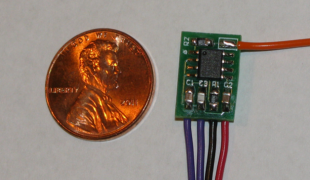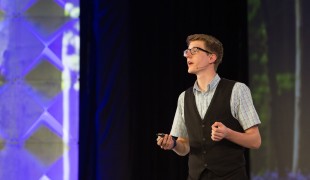- 3823
- 348
- 6
- 12
- 0
- Help Ukraine
About the solution
When Kai Leong was in the seventh grade, his grandmother was diagnosed with Alzheimer's disease. However, before she received the Alzheimer’s diagnosis, doctors thought she was suffering from depression.
Alzheimer's is one of the most common causes of dementia, a general term for memory loss and other cognitive abilities serious enough to interfere with daily life. Early Alzheimer's disease and depression share many symptoms, so it can be difficult to distinguish between the disorders. Also, many people with Alzheimer's disease also are depressed.
The misdiagnosis led him to try to create a tool that would improve the accuracy of early diagnosis of Alzheimer’s disease.
"As somebody who has had a loved one with Alzheimer's disease, I know all too well the struggles that come along with people being misdiagnosed and being diagnosed later on ... issues with treatment outcomes ... issues with quality of life.", Leong said.
The app helps detect users who might have Alzheimer’s disease by measuring and analysing the way the user moves while walking. This is relevant since studies have shown that adults with Alzheimer’s disease have gait and balance deficits.
"What a lot of people don't realize is that walking patterns are actually validated markers of neurodegenerative diseases," Leong explained. "They're often overlooked because of how expensive and how inaccessible current walking analysis or gait analysis is."
In order to get a gait reading, the user should put their smartphone in their back pocket and walk. After the app has recorded their gait, the values are run through an algorithm and compared to the recordings of healthy individuals, as well as individuals suffering from Alzheimer’s.
The research, coding, testing and system-building processes have not always been easy, but Leong knows that is part of the road to success. “We're often taught in school to strive for perfection... So, I would advise people to never be afraid to fail. It doesn't matter if it doesn't work the first time. Failure is often a stepping stone to success.”
His app has led him to participate in an international science competition in China, the China Adolescent Science and Technology Innovation Contest.
Leong’s goal is not to replace the official medical tests for gait evaluation, but rather to offer an affordable tool that allows early detection of gait disturbances, and early identification of individuals who might be suffering from Alzheimer’s disease.
Adapted from: http://bit.ly/2YqmdhL
这些解决方案不应包括使用药物,化学品或生物制品(包括食品);创伤性设备;冒犯性的,商业或内在危险的内容。该解决方案未经医学验证。请谨慎进行!如果您有任何疑问,请咨询健康专家。
DISCLAIMER: This story was written by someone who is not the author of the solution, therefore please be advised that, although it was written with the utmost respect for the innovation and the innovator, there can be some incorrect statements. If you find any errors please contact the patient Innovation team via info@patient-innovation.com
-
-
539
-
0
-
8556

Father creates proximity touch switch for his son
CAREGIVING
Playing
Video gaming
Spinal Cord and Nerve Root Disorders
Body-Worn solutions (Clothing, accessories, shoes, sensors...)
Promoting self-management
Managing Neurological Disorders
To improve Treatment/Therapy
Preventing (Vaccination, Protection, Falls, Research/Mapping)
Caregiving Support
General and Family Medicine
Neurology
Orthopedics
Rheumatology
United States
-
-
-
585
-
0
-
8216

Teen develops wristbands inspired by his father
COMMUNICATION: Communicating, whether by speaking, listening, or other means
CAREGIVING
Hip Deformity
Bone Disorders (Decalcification, Bone Deformity, Bone Fracture, Bone Infection)
App (Including when connected with wearable)
Body-Worn solutions (Clothing, accessories, shoes, sensors...)
Difficulty walking or moving
Muscle weakness
Limited range of motion
Swelling or inflammation
Preventing (Vaccination, Protection, Falls, Research/Mapping)
Caregiving Support
General and Family Medicine
General Surgery
Neurology
Orthopedics
New Zealand
-
-
-
485
-
2
-
7296

Man builds device to help alert caregivers and the doctor if an elderly falls
CAREGIVING
Brain Injury (Abscess, Brain Barrier Defect, Brain Contusion, Brain Hemorrhage, Brain Edema)
App (Including when connected with wearable)
Gait abnormalities (e.g., walking difficulties, unsteady gait)
Difficulty coordinating movements
Preventing (Vaccination, Protection, Falls, Research/Mapping)
Caregiving Support
Neurology
Orthopedics
Rheumatology
Aging
Mobility issues
Caregiver Support
Hong Kong
-
 zh
zh